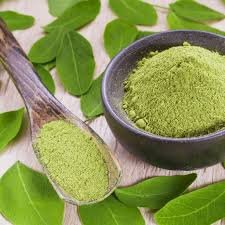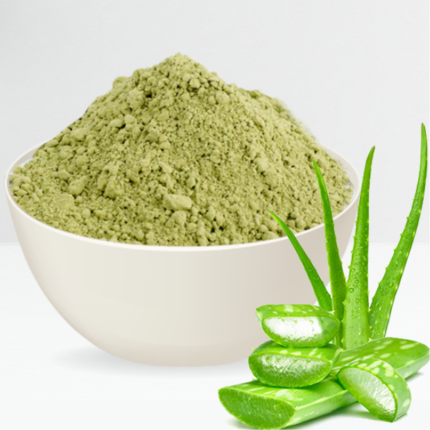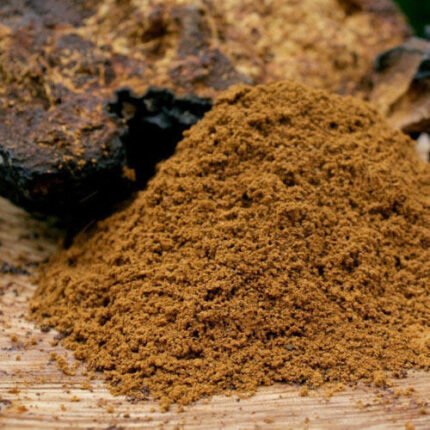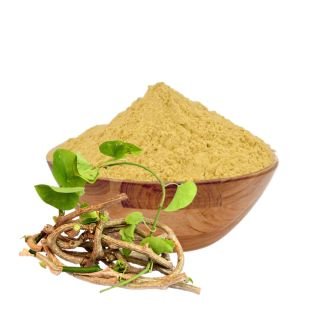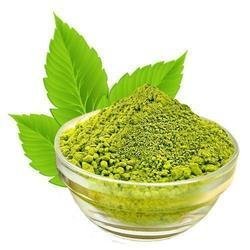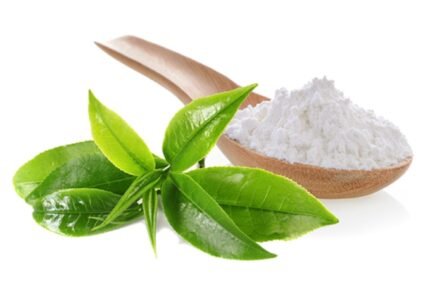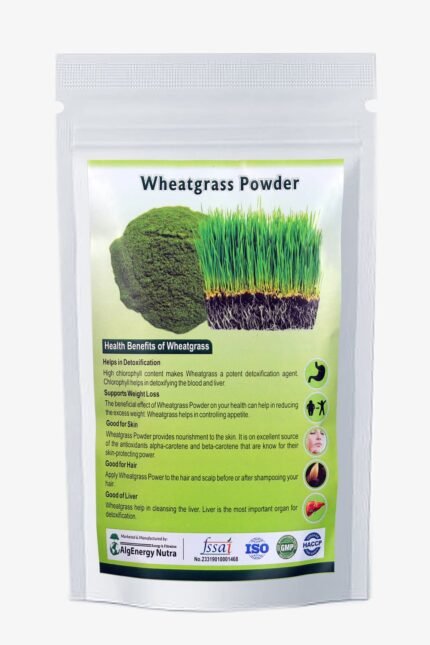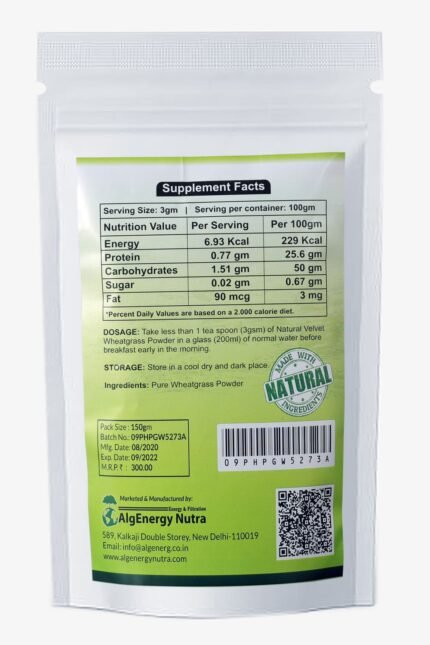
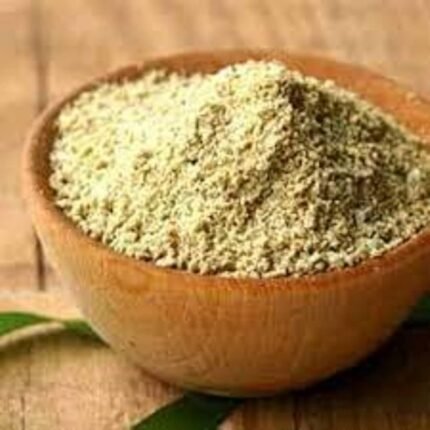
Green Tea Extract
₹600.00 Original price was: ₹600.00.₹540.00Current price is: ₹540.00.
Green Tea Extract is a concentrated supplement derived from the leaves of the Camellia sinensis plant. Renowned for its high levels of antioxidants, particularly catechins like epigallocatechin gallate (EGCG), it offers a wide array of health benefits. Green Tea Extract is best known for its potential to support weight loss by enhancing metabolism and promoting fat oxidation. It also aids in improving energy levels and endurance, making it popular among fitness enthusiasts.
Beyond weight management, Green Tea Extract is associated with various health benefits, including improved cardiovascular health, as it may help lower cholesterol levels and reduce blood pressure. Its antioxidant properties contribute to the reduction of oxidative stress, which can lower the risk of chronic diseases and promote healthy aging.
Additionally, Green Tea Extract may support brain health by enhancing cognitive function and protecting against neurodegenerative diseases. It is also believed to have anti-inflammatory effects, contributing to overall wellness. Available in various forms, including capsules and powders, Green Tea Extract can be easily integrated into daily routines, making it a convenient choice for those seeking to boost their health naturally.
Green Tea Extract: Unlocking the Health Benefits of Nature’s Superfood
Introduction
In a world increasingly focused on health and wellness, natural supplements have gained immense popularity. Among these, green tea extract stands out as a powerful ally for those looking to improve their overall well-being. Derived from the leaves of the Camellia sinensis plant, green tea extract is rich in antioxidants and bioactive compounds, making it a sought-after supplement for various health benefits. This blog post will explore the origins, benefits, uses, scientific evidence, and practical tips for incorporating green tea extract into your daily routine.
What is Green Tea Extract?
Green tea extract is a concentrated form of the compounds found in green tea leaves. Unlike regular green tea, which is brewed and consumed as a beverage, green tea extract is available in various forms, including capsules, powders, and liquids. This extract is primarily known for its high content of catechins, particularly epigallocatechin gallate (EGCG), which is responsible for many of its health-promoting properties.
Origins of Green Tea
Green tea has a long history dating back thousands of years, originating in ancient China. It has been revered not only for its refreshing taste but also for its medicinal properties. In traditional Chinese and Japanese medicine, green tea was used to improve digestion, promote longevity, and enhance mental clarity. As its popularity spread across the globe, scientific research began to uncover the myriad health benefits associated with green tea and its extract.
Nutritional Profile of Green Tea Extract
Green tea extract is rich in several bioactive compounds, making it a potent supplement. Here’s a closer look at its nutritional profile:
Catechins: The primary antioxidants in green tea extract, particularly EGCG, have been extensively studied for their health benefits.
Caffeine: While present in lower amounts than in coffee, caffeine in green tea extract can provide a mild energy boost and enhance mental focus.
L-theanine: This amino acid, found in green tea, is known for its calming effects and can help counterbalance the stimulating effects of caffeine.
Vitamins and Minerals: Green tea extract contains small amounts of essential vitamins and minerals, including vitamins A, C, and E, as well as various B vitamins.
Health Benefits of Green Tea Extract
1. Weight Loss Support
One of the most popular reasons individuals turn to green tea extract is its potential to support weight loss. Numerous studies suggest that the catechins in green tea, particularly EGCG, can help increase metabolic rate and promote fat oxidation. Here’s how it works:
Boosts Metabolism: Green tea extract can increase the number of calories burned at rest and during exercise.
Fat Oxidation: Studies have shown that green tea extract can enhance the body’s ability to burn fat, particularly during exercise.
Reduces Appetite: Some research suggests that green tea extract may help regulate appetite hormones, making it easier to manage cravings and reduce overall calorie intake.
2. Antioxidant Properties
Green tea extract is packed with antioxidants, which play a crucial role in protecting the body from oxidative stress. Oxidative stress occurs when there is an imbalance between free radicals and antioxidants in the body, leading to cellular damage and an increased risk of chronic diseases. The catechins in green tea extract, especially EGCG, are powerful antioxidants that can help neutralize free radicals, reducing the risk of various health issues, including:
Heart Disease: Antioxidants help lower inflammation and prevent the oxidation of LDL cholesterol, reducing the risk of heart disease.
Cancer: Some studies suggest that the antioxidants in green tea extract may inhibit the growth of cancer cells and reduce the risk of certain types of cancer, such as breast, prostate, and colorectal cancer.
3. Improved Heart Health
Research indicates that green tea extract can have a positive impact on cardiovascular health. Regular consumption may help:
Lower Blood Pressure: Some studies suggest that green tea extract may help reduce both systolic and diastolic blood pressure in individuals with hypertension.
Improve Cholesterol Levels: Green tea extract has been shown to lower LDL cholesterol levels and increase HDL cholesterol, contributing to better heart health.
4. Blood Sugar Regulation
Green tea extract may help regulate blood sugar levels, making it a valuable supplement for individuals with insulin resistance or type 2 diabetes. The catechins in green tea extract can:
Enhance Insulin Sensitivity: Studies suggest that green tea extract may improve insulin sensitivity, helping to manage blood sugar levels.
Regulate Glucose Metabolism: Green tea extract may slow down the absorption of carbohydrates in the intestines, preventing spikes in blood sugar levels.
5. Enhanced Cognitive Function
Green tea extract has been linked to improved cognitive function and mental performance. The combination of caffeine and L-theanine in green tea extract can enhance alertness, attention, and focus. Some potential benefits include:
Increased Brain Function: Research suggests that green tea extract may improve memory, attention, and overall cognitive performance.
Neuroprotective Effects: The antioxidants in green tea extract may protect brain cells from oxidative stress, potentially reducing the risk of neurodegenerative diseases such as Alzheimer’s and Parkinson’s.
6. Liver Health
Emerging research indicates that green tea extract may support liver health by:
Reducing Fat Accumulation: Green tea extract may help reduce fat accumulation in the liver, potentially preventing fatty liver disease.
Improving Liver Enzymes: Some studies have shown that green tea extract can improve liver enzyme levels, indicating better liver function.
7. Anti-Inflammatory Effects
Chronic inflammation is linked to various health issues, including heart disease, diabetes, and cancer. Green tea extract possesses anti-inflammatory properties that can help reduce inflammation in the body. By lowering levels of inflammatory markers, green tea extract may contribute to better overall health and a reduced risk of chronic diseases.
8. Skin Health
Green tea extract is increasingly being used in skincare products due to its antioxidant and anti-inflammatory properties. Some potential benefits for skin health include:
Protection from UV Damage: The antioxidants in green tea extract may help protect the skin from UV radiation and reduce the risk of skin cancer.
Reduced Signs of Aging: Green tea extract can improve skin elasticity and reduce the appearance of fine lines and wrinkles, promoting a more youthful complexion.
Scientific Evidence Supporting Green Tea Extract
Numerous studies have examined the potential health benefits of green tea extract, yielding promising results:
A study published in the Journal of Obesity found that participants who took green tea extract experienced significant weight loss compared to those who received a placebo.
Research in the American Journal of Clinical Nutrition indicated that green tea extract could help lower LDL cholesterol and improve overall cardiovascular health.
A meta-analysis published in Nutrition Research suggested that green tea extract supplementation could lead to improved blood sugar regulation and insulin sensitivity.
While these studies indicate potential benefits, it’s essential to approach green tea extract as part of a comprehensive health plan that includes a balanced diet and regular exercise.
How to Use Green Tea Extract
Green tea extract is available in various forms, making it easy to incorporate into your daily routine. Here are some common options:
1. Powdered Form
Green tea extract powder can be added to smoothies, juices, or yogurt for a nutritious boost. It can also be mixed into baking recipes for added health benefits. Ensure you measure the powder accurately to avoid excessive intake.
2. Beverages
Some brands offer green tea extract as a drink mix, allowing you to enjoy a refreshing beverage with the benefits of the extract. Look for unsweetened options to keep your drink healthy.
3. Skincare Products
For those interested in skincare, consider using products that contain green tea extract. These formulations can help rejuvenate the skin and provide antioxidant protection.
Potential Side Effects and Precautions
While green tea extract is generally considered safe for most individuals, it’s essential to be aware of potential side effects:
1. Caffeine Sensitivity
Green tea extract contains caffeine, which can cause side effects in individuals sensitive to stimulants. Common symptoms include jitteriness, increased heart rate, and insomnia. If you’re sensitive to caffeine, consider starting with a lower dose or consulting a healthcare professional.
2. Digestive Issues
Some individuals may experience digestive discomfort, such as upset stomach or diarrhea, when taking green tea extract. To minimize these effects, consider starting with a lower dose and gradually increasing it.
3. Interactions with Medications
Green tea extract may interact with certain medications, particularly those for blood pressure, diabetes, or blood thinners. If you’re taking any medications, consult your healthcare provider before adding green tea extract to your routine.
4. Pregnancy and Breastfeeding
Pregnant or breastfeeding women should exercise caution and consult a healthcare professional before using green tea extract, as the effects on fetal development and lactation are not well-studied.
Choosing the Right Green Tea Extract
When selecting a green tea extract product, consider the following factors to ensure you choose a high-quality supplement:
1. Source and Quality
Look for products sourced from reputable manufacturers with a commitment to quality. Organic options are often preferable, as they are free from


